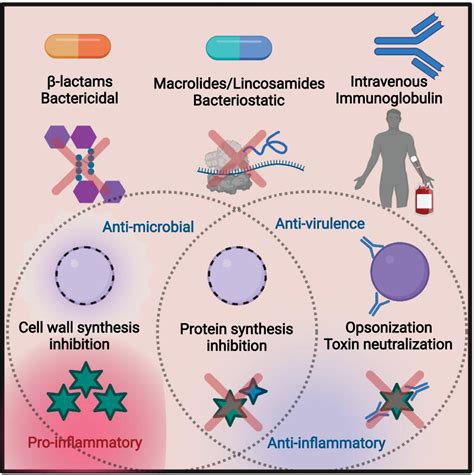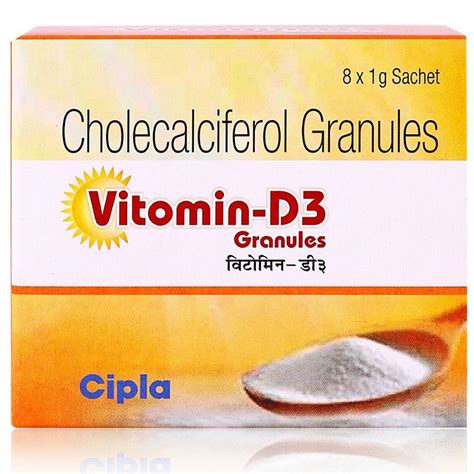Mouth Ulcers And Chemotherapy
Mouth ulcers, also known as mucositis, are a common side effect of chemotherapy. These painful sores can develop on the inside of the mouth, lips, tongue, and throat, making it difficult to eat, drink, and even speak. The exact mechanism of how chemotherapy causes mouth ulcers is complex, but it is thought to be related to the damage that chemotherapy drugs cause to the rapidly dividing cells in the mouth.
Chemotherapy targets rapidly dividing cancer cells, but it can also affect other rapidly dividing cells in the body, such as those in the mouth. The mouth is particularly vulnerable to the effects of chemotherapy because it is lined with mucous membranes that are rich in blood vessels and have a high turnover of cells. When chemotherapy damages these cells, it can lead to inflammation, ulcers, and pain.
The symptoms of mouth ulcers caused by chemotherapy can vary in severity, but they often include:
- Painful sores or ulcers on the inside of the mouth, lips, tongue, and throat
- Redness and swelling of the affected areas
- Difficulty eating, drinking, and speaking
- Dry mouth or changes in taste
- White patches or pus on the ulcers
The risk of developing mouth ulcers during chemotherapy is higher in people who:
- Receive high-dose chemotherapy
- Have a history of mouth problems, such as gingivitis or tooth decay
- Have a weakened immune system
- Are malnourished or dehydrated
- Are taking certain medications, such as steroids or antibiotics
To manage mouth ulcers caused by chemotherapy, doctors and nurses may recommend a variety of treatments, including:
- Topical anesthetics, such as lidocaine or benzocaine, to numb the pain
- Anti-inflammatory medications, such as corticosteroids, to reduce swelling
- Antibiotics to prevent infection
- Pain relief medications, such as acetaminophen or morphine, to manage discomfort
- Oral rinses or mouthwashes to keep the mouth clean and reduce bacteria
In addition to these treatments, there are several things that people can do to help prevent and manage mouth ulcers during chemotherapy:
- Practice good oral hygiene, including brushing and flossing regularly
- Use a soft-bristled toothbrush and mild toothpaste
- Avoid spicy, acidic, or sharp foods that can irritate the mouth
- Stay hydrated by drinking plenty of water and other fluids
- Avoid smoking and tobacco products, which can exacerbate mouth ulcers
- Consider using a mouthwash that contains ingredients such as salt, baking soda, or hydrogen peroxide to help reduce bacteria and inflammation
It’s also important to note that there are some alternative therapies that may help to prevent or manage mouth ulcers during chemotherapy, such as:
- Acupuncture, which may help to stimulate healing and reduce pain
- Herbal supplements, such as aloe vera or slippery elm, which may help to soothe and protect the mucous membranes
- Probiotics, which may help to maintain a healthy balance of bacteria in the mouth
However, it’s essential to talk to a doctor or nurse before trying any alternative therapies, as some may interact with chemotherapy or have other side effects.
What are the most common symptoms of mouth ulcers caused by chemotherapy?
+The most common symptoms of mouth ulcers caused by chemotherapy include painful sores or ulcers on the inside of the mouth, lips, tongue, and throat, as well as redness, swelling, and difficulty eating, drinking, and speaking.
How can I prevent mouth ulcers during chemotherapy?
+To help prevent mouth ulcers during chemotherapy, practice good oral hygiene, use a soft-bristled toothbrush and mild toothpaste, avoid spicy or acidic foods, stay hydrated, and avoid smoking and tobacco products.
What are some alternative therapies that may help to manage mouth ulcers during chemotherapy?
+Some alternative therapies that may help to manage mouth ulcers during chemotherapy include acupuncture, herbal supplements such as aloe vera or slippery elm, and probiotics. However, it's essential to talk to a doctor or nurse before trying any alternative therapies.
In conclusion, mouth ulcers are a common side effect of chemotherapy that can cause significant discomfort and difficulty eating, drinking, and speaking. While there are several treatments available to manage mouth ulcers, it’s also important to take steps to prevent them, such as practicing good oral hygiene and avoiding spicy or acidic foods. By understanding the causes and symptoms of mouth ulcers, as well as the various treatments and alternative therapies available, people can better manage this side effect and focus on their overall health and well-being during chemotherapy.
It’s worth noting that researchers are continually exploring new ways to prevent and manage mouth ulcers caused by chemotherapy. For example, some studies have investigated the use of cryotherapy, which involves using ice or cold temperatures to reduce inflammation and pain. Other studies have looked at the potential benefits of certain nutrients, such as vitamin E and beta-carotene, in reducing the risk of mouth ulcers.
Ultimately, the best approach to managing mouth ulcers during chemotherapy will depend on the individual’s specific needs and circumstances. By working closely with their healthcare team and staying informed about the latest treatments and research, people can develop a personalized plan to manage this side effect and achieve the best possible outcomes.
In the future, it’s likely that we will see even more advances in the prevention and management of mouth ulcers caused by chemotherapy. For example, researchers may develop new medications or therapies that can help to reduce the risk of mouth ulcers, or improve the effectiveness of existing treatments. Additionally, there may be a greater emphasis on personalized medicine, where treatments are tailored to an individual’s specific genetic profile and medical history.
As our understanding of the causes and consequences of mouth ulcers during chemotherapy continues to evolve, it’s essential that we prioritize further research and development in this area. By doing so, we can improve the quality of life for people undergoing chemotherapy, and help to ensure that they receive the best possible care and support throughout their treatment journey.
According to a recent study published in the Journal of Clinical Oncology, the use of topical anesthetics and anti-inflammatory medications can significantly reduce the severity of mouth ulcers caused by chemotherapy. The study found that patients who received these treatments experienced a reduction in pain and discomfort, as well as a decrease in the severity of their mouth ulcers.
The key to managing mouth ulcers during chemotherapy is to take a proactive and multi-faceted approach. This includes practicing good oral hygiene, avoiding spicy or acidic foods, staying hydrated, and using topical anesthetics and anti-inflammatory medications as needed.
By following these tips and staying informed about the latest research and developments, people can reduce their risk of developing mouth ulcers during chemotherapy, and improve their overall quality of life during treatment.
In terms of future directions, it’s likely that we will see a greater emphasis on personalized medicine and targeted therapies in the prevention and management of mouth ulcers caused by chemotherapy. For example, researchers may develop new genetic tests that can identify individuals who are at higher risk of developing mouth ulcers, and provide them with targeted treatments and interventions to reduce their risk.
Additionally, there may be a greater focus on the use of alternative therapies, such as acupuncture and herbal supplements, in the management of mouth ulcers during chemotherapy. While these therapies are not currently widely accepted as part of standard treatment protocols, they may offer a useful adjunct to conventional treatments, and help to improve the overall quality of life for people undergoing chemotherapy.
Ultimately, the prevention and management of mouth ulcers caused by chemotherapy will require a comprehensive and multi-disciplinary approach, one that takes into account the complex interplay of biological, psychological, and social factors that contribute to this side effect. By working together and prioritizing further research and development in this area, we can improve the quality of life for people undergoing chemotherapy, and help to ensure that they receive the best possible care and support throughout their treatment journey.
Pros and Cons of Using Topical Anesthetics to Manage Mouth Ulcers During Chemotherapy
| Pros | Cons |
|---|---|
| Can provide rapid and effective pain relief | May have side effects, such as numbness or tingling |
| Can be used in combination with other treatments, such as anti-inflammatory medications | May not be suitable for people with certain medical conditions, such as liver or kidney disease |
| Can help to reduce the severity of mouth ulcers and improve overall quality of life | May require frequent application and can be time-consuming to use |
By carefully weighing the pros and cons of using topical anesthetics to manage mouth ulcers during chemotherapy, people can make informed decisions about their treatment and develop a personalized plan that meets their unique needs and circumstances.
In the end, the management of mouth ulcers during chemotherapy requires a comprehensive and multi-faceted approach, one that takes into account the complex interplay of biological, psychological, and social factors that contribute to this side effect. By prioritizing further research and development in this area, and working together to develop new and innovative treatments, we can improve the quality of life for people undergoing chemotherapy, and help to ensure that they receive the best possible care and support throughout their treatment journey.
Step-by-Step Guide to Managing Mouth Ulcers During Chemotherapy
- Practice good oral hygiene, including brushing and flossing regularly
- Use a soft-bristled toothbrush and mild toothpaste
- Avoid spicy or acidic foods that can irritate the mouth
- Stay hydrated by drinking plenty of water and other fluids
- Consider using topical anesthetics or anti-inflammatory medications to manage pain and discomfort
- Follow a healthy and balanced diet that includes plenty of fruits, vegetables, and whole grains
- Get plenty of rest and try to manage stress and anxiety
By following these steps and working closely with their healthcare team, people can develop a personalized plan to manage mouth ulcers during chemotherapy, and improve their overall quality of life during treatment.


